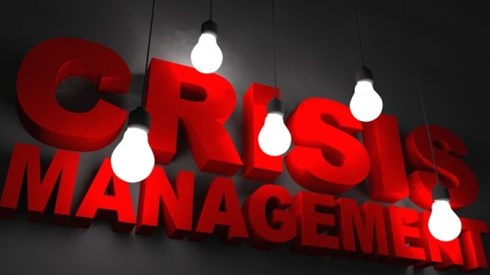The Pandemic's Impact on Captives' Short-Range Planning

John M. Foehl | September 14, 2020

I have specifically avoided writing on the COVID-19 crisis and its impact on captive insurers. First, there has been a good deal of material already produced, and second, I didn't know what I could add to the conversation.
However, several recent articles on my reading list led me to rethink this decision. As many of you recognize, my focus has been on governance and corporate planning. In my opinion, the pandemic will have implications for both these factors. Heading into the final quarter of 2020 is when many captives will begin preparing new business plans and budgets for the next fiscal year. Here is how I see the pandemic's impact on short-range planning as it pertains to the captive insurance industry.
One of the articles I read came from Aon: "COVID-19 Risk Management: 5 Key Questions Your Organization Needs To Answer." The first question posed in the paper is, "Have you reviewed your exposures?" While this is geared toward an organization's own exposures and risk assessment, I think the question is also germane to coverage that captives write. In preparing the 2021 business plan, management should think through how the pandemic might impact the risks they insure. We have already seen an example of this in businesses trying to collect for the pandemic losses under business interruption coverage.
Captives have always served as an alternative to the traditional markets and have been used to offer coverage that this market was unwilling to underwrite and cover. My sense is there is likely to be a push by owners and policyholders to cover some of the risks uncovered by the pandemic. But captives need to ask if they can rate, price, and adjust these risks properly. While there is definitely a short-term gain to be had from new premium volume, an adage comes to mind: Insurance is one of the few businesses where you don't know the cost of goods sold when you sell the product. Only years later, as claims develop, do you know whether you priced your product accordingly.
Accenture produced a piece titled Outmaneuvering Uncertainty with Financial Planning: It's Time To Rethink Financial Planning and Analysis (May 21, 2020). The article notes, "The business and human impacts of the COVID-19 pandemic demand a new approach to managing complexity now.... Many companies have found their older plans have become irrelevant." I've written about scenario planning as a long-term process; however, Accenture is advocating shifting planning to a real-time model using scenario planning techniques. In its view, there are four keys to making this successful.
- Determine correct forecasting time horizons.
- Identify financial forecast drivers.
- Model rapid changes based on external factors.
- Create planning processes and solutions that are agile.
For captive insurance companies, where the use of static short-range planning is very common, this requires a real paradigm shift. However, as this pandemic has shown, even the most robust plans needed to be adjusted. Consider whether you are willing and able to alter your 2021 planning process to adopt some of these ideas. If so, what needs to be done in order to make this change happen?
While the pandemic has been the leading story of 2020, a July 27, 2020, report by Kasey Panetta for Smarter with Gartner, Gartner, Inc., titled 8 Macro Factors That Will Shape the 2020s, suggested other influences. For me, the ones most likely to impact captive insurers are the following.
- Market crash and recession. Gartner suggests organizations consider a variety of business and economic growth rates and test recovery plans against different possibilities. It's similar to the scenario planning that Accenture advocates.
- Talent shortages. It seems strange to think that with elevated unemployment rates this should be a concern. However, as the article points out, "While COVID-19 has increased unemployment and underemployment, it has not created new pools of in-demand talent." This means that captives and the vendors that serve the industry will continue to struggle to find the key people they need. Does your 2021 plan include some commentary on how you would deal with this problem if it arises?
- Systemic mistrust. I believe this could be a real sleeper issue that is not seen as important. While Gartner suggests that long-term this may lead to more empathy and cooperation, what if it doesn't? How does that factor into how you deal with employees, vendors, owners, and policyholders? What can you or should you do to combat this problem?
- Weak productivity. As is well known, productivity growth has been weak for a number of years. Gartner suggests this trend is likely to continue to be exacerbated by the shift to remote work. While earlier indicators suggest that productivity has not suffered as a result of remote working, as the pandemic wanes and employment improves, will this continue? What happens if it doesn't, and what are the potential cost implications for your captive?
Finally, one other resource captives may want to consider as they develop their 2021 plans is the Insurance AUM Journal website. The Federal Reserve has indicated it plans to keep interest rates near zero through at least 2022 and possibly longer than that, depending on economic activity. How does this impact your captive's investment portfolio and interest income forecasts? Will you be content with your current risk profile and accept the income it produces, or will you reach for yield? What are the risks in doing so? The Insurance AUM website contains a number of interesting articles written by many of the top money managers. They offer perspective on asset classes, portfolio construction, and outlooks for the markets.
In my 40 years in the industry, I don't think I have ever seen a time with more uncertainty than heading into 2021. In writing this article, there are certainly other factors worth considering in your next year's plans: hardening markets, reinsurance, and the election all come to mind. In my case, I'm glad to be retired.
John M. Foehl | September 14, 2020

